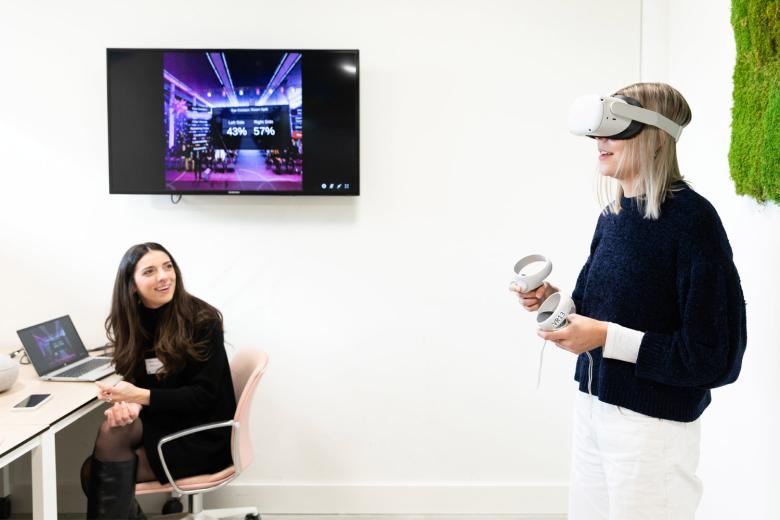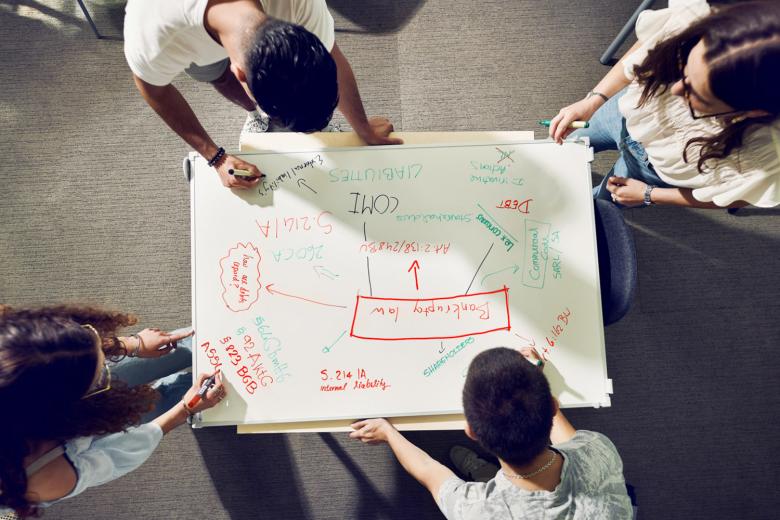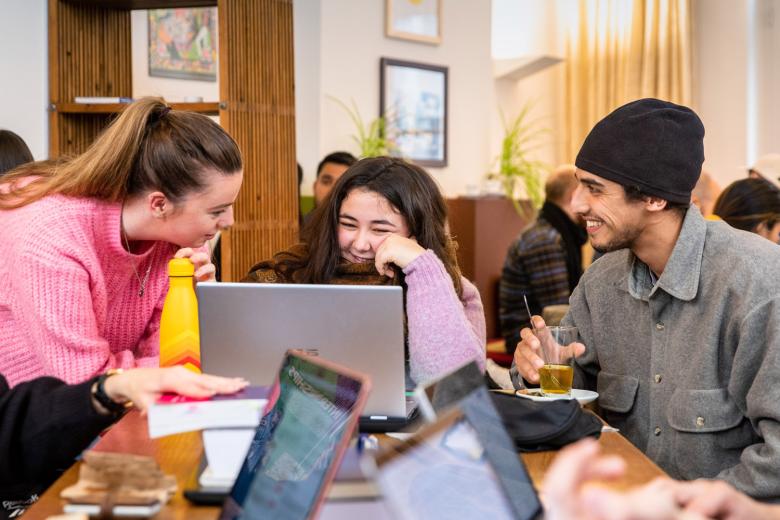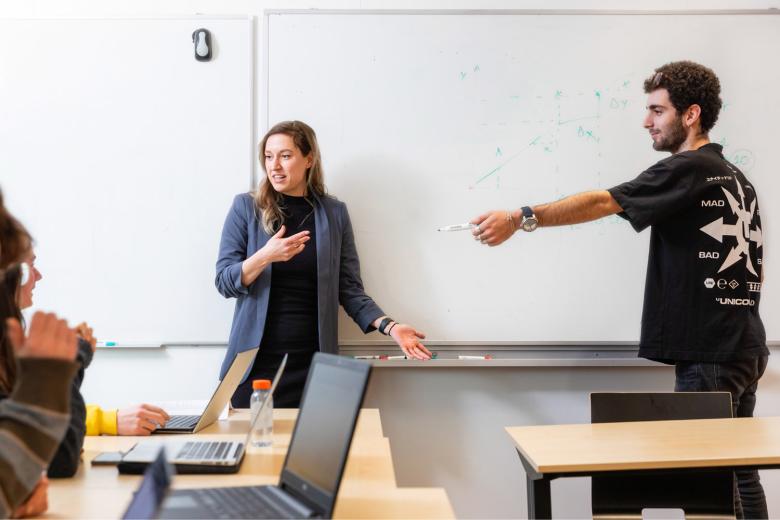Problem-Based Learning
At Maastricht University, students learn by working in small groups to solve complex, real-world problems. This active approach, called Problem-Based Learning (PBL), not only increases students’ motivation, but it also leads them beyond memorisation to develop a deeper understanding of the subject matter.
Our teaching staff facilitate the learning process, providing guidance, feedback and regular assessments to make sure students stay on track and develop the competencies they need to be successful in the labour market.
Learning in small groups helps students become effective communicators, collaborators, critical thinkers and problem solvers who are well-prepared to tackle complex challenges in their future careers and make meaningful contributions to society.
Enriched by cultural diversity
Problem-Based Learning is enriched by our international learning environment. At UM, more than 50% of our students and 40% of our academic staff come from abroad. Collaborating in culturally diverse groups helps students to recognise and question their assumptions, view issues from multiple perspectives and come up with more creative solutions.
This diversity deepens their cultural understanding and challenges them to think in more creative and innovative ways than they might in a more homogenous setting.
Global Citizenship Education
Our Problem-Based Learning approach, combined with our international classroom, provides a natural foundation for Global Citizenship Education.
By integrating Global Citizenship Education into our curriculum, we provide a learning path that allows students to develop Global Citizenship competencies and encourages them to reflect on their role as global citizens. This aligns perfectly with PBL, where students explore actual problems or challenges we are facing in society today. Doing this opens their eyes to their broader social responsibility.
Our aim is to empower students to tackle global challenges and equip them to make meaningful contributions towards a more just, peaceful, tolerant, inclusive, secure and sustainable world.
Core values of PBL
PBL is built on four learning principles derived from the constructivist learning theory: constructive, contextual, collaborative and self-directed learning (CCCS).
Constructive learning
Constructive learning is an approach in which students construct their own knowledge ‘networks’ by reflecting on what they already know; finding, analysing and discussing various source materials; and integrating newly acquired insights. Students are encouraged to explore different points of view, ask critical questions, check contradictory information and apply logical reasoning.

Contextual learning
With contextual learning, students apply knowledge in a meaningful context. They do this by analysing actual cases from professional practice, debated topics within scientific communities, or societal problems that require an academic approach. Brainstorming about what they already know about the topic adds further to contextuality as it links the issues discussed to personal experiences.

Collaborative learning
Collaborative learning is an approach where students actively engage with one another, exchanging ideas and feedback to co-construct knowledge. The students share the responsibility to collectively discuss and unravel a problem within the tutorial group. They critically evaluate each other’s ideas and formulate learning objectives, conduct independent and discuss their findings.

Self-directed learning
With self-directed learning, students manage their own learning process by planning, monitoring and evaluating their understanding, as well as finding and managing information and resources. While tutors are available to provide support and monitor progress, the student is the driving force behind their learning process.

The benefits of CCCS
The four learning principles deepen students’ comprehension of the subject matter and help them apply what they learn in new situations. This approach stimulates continuous learning and enables students to effectively navigate and understand complex information.
Working with relevant problems increases motivation and fosters critical thinking and adaptability. Students link their individual learning to group goals, building essential interpersonal skills. This prepares them for real-world scenarios where teamwork and communication are vital.
Furthermore, by taking the initiative in diagnosing and addressing their own learning needs instead of being told what to do, students develop a strong foundation for continuous personal and professional growth.
UM student Astrid explains PBL and CCCS
Want to know more?
In this interactive visual about PBL, students and teaching staff talk about their experiences with Problem-Based Learning.
PBL in practice
At UM, Problem-Based Learning encompasses multiple educational formats that are all grounded in the core CCCS principles. In practice, PBL can look different from one programme to another. It’s not exactly the same for Medicine students as it is for European Studies students, for instance.
Whatever format is used, the learning cycle almost always starts with a description of a situation, case, problem or project to spark students’ intrinsic motivation to seek answers, solutions, options and approaches—and to learn while doing so.
Throughout the learning process, students might focus on conducting research to address or clarify the problem, coming up with solutions for the case or setting up a project that applies content from their courses. The various forms of PBL that we apply at UM include Research-Based Learning, the 7 steps and Project-Centred Learning.
Continued innovation of PBL
At Maastricht University, we have applied PBL as our teaching method from the time our university was founded in 1976. We have years of experience with innovating PBL and improving its effectiveness and its ability to engage students in the learning process. This tradition is carried on through our teaching staff and our faculties, as well as through EDLAB, our Centre for Teaching & Learning.
EDLAB focuses on the research and innovation of education at UM and studies all of the best practices of the university and beyond so we can learn from one another and remain leaders in Problem-Based Learning. It also provides expertise, support, professional development and collaboration opportunities for staff and students to enhance the quality of PBL throughout our university.